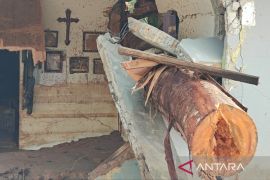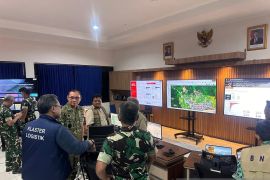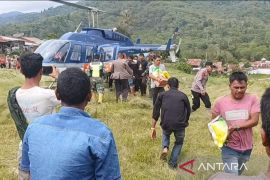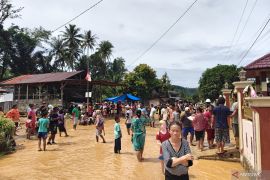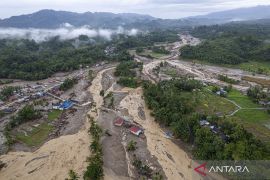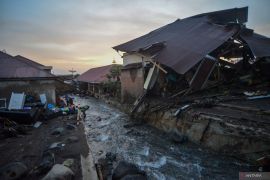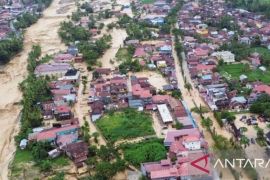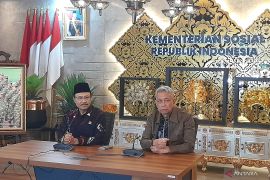Head of BNPB, Willem Rampangilei, told reporters in Karangasem, Wednesday, that the bee, Koak 3.0 and, multirotor drones will be utilized to conduct surveys of video and photo documentations of the crater and the area around the mount.
Multirotor drones can be operated at 500-meter height, while the bee and Koak 3.0 can be operated at an altitude of 4,000 meters, with three flying hours.
The Center for Volcanology and Geological Hazard Mitigation (PVMBG) and the drone company had surveyed some locations to determine the flying point of the unmanned mini aircraft.
For the initial survey, the team operated mavic drones in three locations of Pura Pasar Agung Selat, Tulamben Tree House, and Kubu sub-district.
According to the Head of Volcano Mitigation of PVMBG, Gede Suantika, further monitoring, using drones, is required to get the details on the color of smoke rising from the crater.
The volcanic fumes are usually white, gray, yellow, or even dark, he added.
"The dark color signals the presence of volcanic ash, which is dangerous," he revealed.
In addition to monitoring the condition of the crater and smoke, he also sought details on the condition of the crack in the crater, which was previously estimated to be around 100 meters in length.
Visual monitoring from the observation post of Rendang village, which is about 12 kilometers from Mount Agung, shows the volcano still being covered by thick fog.
Meanwhile, seismic observation has monitored 40 times of shallow volcanic tremors, 117 times of volcanic tremors, 8 times of local tectonics, as well as an earthquake felt from 00.00 until 06.00 a.m. local time.(*)
Editor: Heru Purwanto
Copyright © ANTARA 2017
